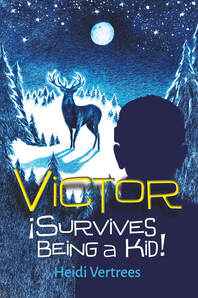|
As Christian parents, teachers, or grandparents, we know the importance of a Christian worldview, and part of this is helping children and teens understand how to write as Christians. As children grow in their skills of writing, we hope for them to love Jesus. Blog posts on newSongpress.net give tips and advice to further young authors and writers in their writing, so that they can also grow in their abilities to write as Christians. When teaching children and teens writing, please honor prewriting. Too often children and teens are rushed to the “high board” by over-eager, short-on-time, teachers and parents, and expected to jump into a writing assignment with little preparation for the topic. Letting students doodle briefly before writing, while you pray they are staying on topic, is not enough. 1. Enrich with Personal Experiences Recently, I was involved in a town history day where children created sand paintings based on historical photos from the heyday when trollies zipped through our towns and hilly countryside. I can’t say the results of their artwork would have been much improved if their parents first took them to the nearby trolley museum or popped them on a restored trolley for a jolly ride. However, certainly the project would have taken on a great deal more meaning for the children if they first were enriched by personal experiences with the project theme. Let’s Hear Their Voices When it comes to writing, we are much more likely to hear the yearned for young writers’ voices, if they have a “dog in the fight.” We want our writers to be engaged and care about their writing topics. Let’s give them lots of opportunity to become empowered before they write. Don’t we all write better when we know a great deal about our subject? What Does This Look Like? We all know we live in an age of TMI--too much information. Young writers can also get overwhelmed if they are given too much information as they learn about a topic. An adage to authors is--write about what you know. 2. Begin prewriting with introducing the topic and then let the students think about what they understand and know about the topic. Encourage them to make a chart or list of keywords and memorable experiences they recall about the topic. They could draw a web outline, with the main topic as the center circle and connecting smaller ovals with keywords. Sometimes this is called mapping. 3. Let them talk about the topic. Here might be a great time for you, as the teacher, to note students’ working vocabulary for this topic and make some fun and creative side lessons to expand students’ vocabulary for this writing unit. How about having several new words of the day and cheering for students when they apply them in their conversations? If you are in a group setting, this can become a team competition. Create acrostics and crossword puzzles with the new words. Give them extra credit points or rewards for correctly using these words in their journal writing. (Click here for more ideas on word games to help young writers build their vocabulary.) Learning how to write as Christians includes learning Bible related words. For instance, I have seen teachers ask children if they have any prayer requests, and then get puzzled looks by unchurched children who then ask, What is a prayer request? Even with our own children, we should check they have a kid-friendly understanding of Christian related words. 4. Brainstorm Next, challenge them to talk about and write questions they have regarding the topic. Then, brainstorm ways they can learn more in the areas that interest them. Interview a neighbor? Watch some YouTube videos? Here’s a great opportunity to read both fiction and nonfiction articles and books that enrich their understanding of the topic. It may include family read alouds and audiobooks, too. 5. Keep Research Journals Encourage young writers to keep a daily record of their findings and questions. A spiral notebook is sufficient, but digital apps such as Notes on a cell phone can work well too. Prewriting is such an important stage of writing and as teachers, including homeschool teachers, interact with your students about their entries. Use this as a springboard to create more dialogue, because the more the topic is verbalized, chances are the easier it will be for children to write the desired assignment. 6. Bump It Up Heavenward Imagine rushing to a water fountain when your whole insides shout for water. As soon as you drink the cold water you feel refreshed. Here’s the challenge. If your goal is also to help youth write with the importance of a Christian worldview, how can you help them have a thirst for Jesus, who is the Living Water, at least as keenly as they have for cold, refreshing water from a water fountain? To top it off, how can they take this fervent faith into the topic which they are preparing to write about? As they share with you the information and stories they are discovering in their research, find the poignant moments to ask questions such as--What does the Bible teach us about this? Do you remember a time in (specific Bible lesson) that (for example, King David) experienced this? What do you think Jesus would do? What do you imagine His disciples might think? What do you think God is wanting you to learn from your research? Give students a chance to reflect on these questions and verbalize their thoughts. Then encourage them to add their ideas into their journals, to save them for working into their writing assignments. Remember what I said about writer’s voice? We need to be so careful here that children and teens know they can write about their faith in a genuine way, and not fall in the trap of writing because it sounds good and religious. The last thing we want to do is encourage them in phony faith growth. Recently, I was talking with a small group of kindergartners about God knowing our hearts. One little girl piped up, “Of course He does. Jesus is in my heart.” Now that’s the joyous voice fresh from a young person’s perspective! 7. Make Scribble Pads Handy As to notebooks, your students may each love having a pocket-size notebook, in addition to a larger one, perhaps even ones they make, but certainly ones in which they can personalize the covers. If you write, even emails or texts, then you know that there are special moments when we get inspirations, some with Holy breath, and it’s so important to jot down some key ideas right then and there. So, it can also be true for children and teens. You might try keeping a handy, small notebook for yourself and share parts with your students, so they see this practice being modeled. You can also tell them how those special moments occurred. For me, I can just be standing and all of a sudden many ideas rush into my head. Like a special delivery. 8. Pray Which leads me to another important prewriting aspect, and that is to regularly pray before writing. I hope you can start each writing session this way. We all need to get at least a sip every day from the Great Fountain, before we begin a project, and some of us need to gulp. Most importantly, pray for God’s guidance in how He wants the project to develop. Pray for the people for whom you are writing. May our writing be for His Glory. One Final Prewriting Tip... 9. Use Touchstone Texts Ralph Fletcher is a renowned author of many books to help children learn to write, such as How Writers Work: Finding a Process That Works for You; Live Writing: Breathing Life into Your Words; A Writer’s Notebook: Unlocking the Writer Within You; Boy Writers: Reclaiming Their Voices, and Writing Workshop, the Essential Guide. (Click here for his books on Amazon.) One of the points Ralph Fletcher encourages are mentor texts. In my teaching experience, we also called these touchstone texts. Depending upon the writing focus, a teacher would begin each writing workshop reading aloud an excerpt from an article or book--to enhance students’ exposure to good literature and the writing focus being addressed. Students can use the mentor text to whatever degree it fits for their own writing. When we take home a stone from a hike and touch it while we are back home, it reminds us of our hike. Similarly, the touchstone text is one you and your children can come back to, to remember a lesson or idea you have introduced to them for their own writing. In another blog post, I will write about prewriting with a focus on fiction and poetry writing, to help you guide your students in creating better story characters, plots, and verse. Helping them learn how to write as a Christian will be included. You are welcome to contact me at newSongpress.net with any questions or ideas you may have about prewriting for children and teens with a Christian worldview. Important Reminders...Are you and your young budding authors interested in a writing contest? Please see details at the end of the newSongPress.net last November blog. It was called Two Fun Ways to Enhance Children and Teen's How-to Writing. Click HERE. Deadline is fast approaching--March 1, 2023. We welcome your submissions. 😊 Would you like to get my periodic newsletter that has extra tips and reminds you of new blog posts? You are invited to sign up by clicking www.newsongpress.net/HERE. Just scroll down the homepage. Your privacy is always protected. May God bless you all in your endeavors,
Heidi Vertrees Author/Educator Victor Survives Being a Kid (An uplifting book for middle graders) Click here for Amazon's paperback or Kindle version. newSongpress.net
0 Comments
Your comment will be posted after it is approved.
Leave a Reply. |
Archives
November 2023
CategoriesAll Christian Writing Prompts Christian Writing Prompt That Helps Kids See God's Love For Them Christian Writing Workshops Songwriting Prompts Students Writing With Strong Voice Teaching Reluctant Writers Writing-with-strong-voice |
COPYRIGHT 2023, NEWSONG PRESS





 RSS Feed
RSS Feed